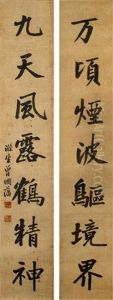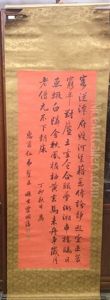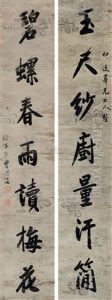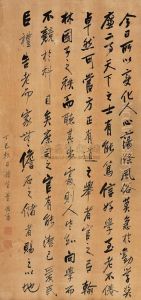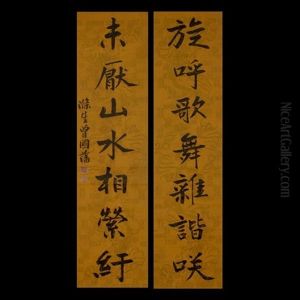Zeng Guofan Paintings
Zeng Guofan is not primarily known as an artist but as a Chinese statesman, military general, and Confucian scholar of the late Qing Dynasty. He was born on November 26, 1811, in Hunan province into a family with a scholarly background. His education was deeply rooted in Confucian classics, which was typical for the Chinese elite of the time. Zeng passed the imperial examinations with high honors and entered into official service. His life and career were defined by the tumultuous events of mid-19th century China.
Zeng is perhaps best known for his role in suppressing the Taiping Rebellion, a massive civil war in southern China led by the Taiping Heavenly Kingdom against the Qing Dynasty. Appointed by the Qing court, Zeng organized regional armies, known as the Xiang Army, which became a key force in the eventual defeat of the Taiping rebels. His leadership in this conflict earned him the reputation of a capable military strategist and a loyal servant of the Qing Dynasty.
Beyond his military exploits, Zeng was also involved in governmental reforms and was a proponent of the Self-Strengthening Movement, which aimed to modernize China's military and industry to resist foreign aggression. He advocated for the adoption of Western military technology while maintaining Confucian principles within Chinese society.
Zeng's contributions to literature and education were significant. He compiled the 'QuanShu,' an anthology of Qing dynasty literature, and was responsible for reviving and reforming the traditional Chinese examination system. His letters and writings reflect the intellectual and moral concerns of his era and have been studied by scholars for their insights into the period's governance and society.
Zeng Guofan's death on March 12, 1872, marked the end of an era for China. He had been a crucial figure in a period of great upheaval, and his policies and military reforms had a lasting impact on the course of Chinese history. While not known as an artist, his life and work had an undeniable influence on the cultural and political landscape of his time.
